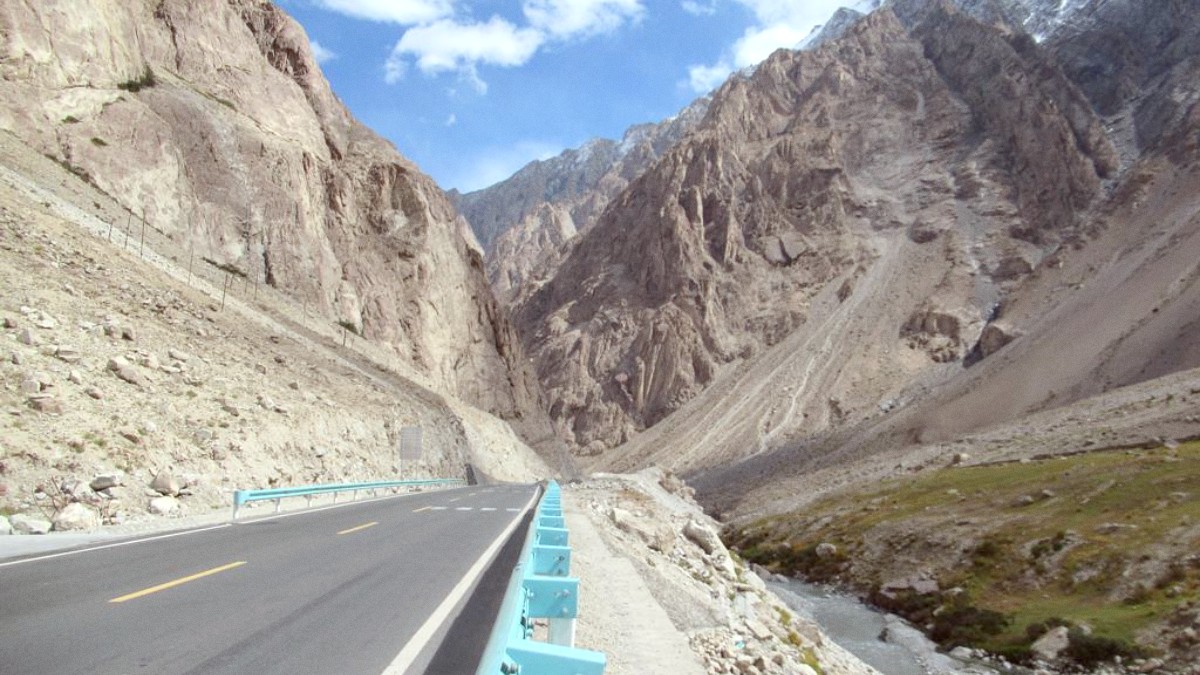
Pakistan
Khunjerab National Park protects high-altitude wildlife. Adhere to park rules; stay on designated paths and do not disturb wildlife. Local NGOs work on environmental protection.
Waste management infrastructure is poor outside major towns. Recycling facilities are minimal. Carry out all trash, including plastic bottles and food waste. Dispose of waste properly in bins when available.
Water scarcity can arise in some areas. Be mindful of your water usage. No formal local carbon offset options exist for transport. Purchase international carbon offsets from reputable organizations.
Cultural awareness promotes positive interactions.
Local communities, cultural trusts (like the Aga Khan Cultural Service Pakistan), and NGOs preserve traditional architecture, languages, and cultural practices. Support these through responsible tourism.
Dress modestly to show respect. Learning a few local phrases is appreciated. Ask permission before taking photos of people, especially women and children. Be aware of local customs during observances.
Avoid close-up photos of individuals without explicit permission. Be discreet. Respect privacy; not everyone wants to be photographed, even in public spaces.
Always remove shoes before entering mosques or shrines. Women cover heads. Maintain silence and a respectful demeanor inside. Dress modestly.
A growing number of guesthouses adopt eco-friendly practices. Inquire about their initiatives. Support Ecobnb for eco-friendly accommodation.
Prioritize tour operators demonstrating commitment to sustainability. Consider ethical tour operators like G Adventures.
Support cultural preservation efforts by learning local phrases and respecting customs. Always ask permission before photographing individuals.
Responsible tourism supports local communities.
Seek out and support community-based tourism programs. These initiatives channel tourism revenue directly back into local villages, supporting development projects or income generation.
Look for products sold directly by artisans or through community initiatives. This ensures fair wages and ethical production practices. Inquire about the origin of products.
Responsible travel avoids practices that might harm local communities or cultures.
Avoid giving money directly to beggars, especially children. Donate through reputable local NGOs or community projects.
Be aware of and avoid any situations that might involve child labor or exploitation. Prioritize businesses with ethical labor practices.
Do not encourage practices that exploit local culture for tourist entertainment without genuine community benefit or respect.